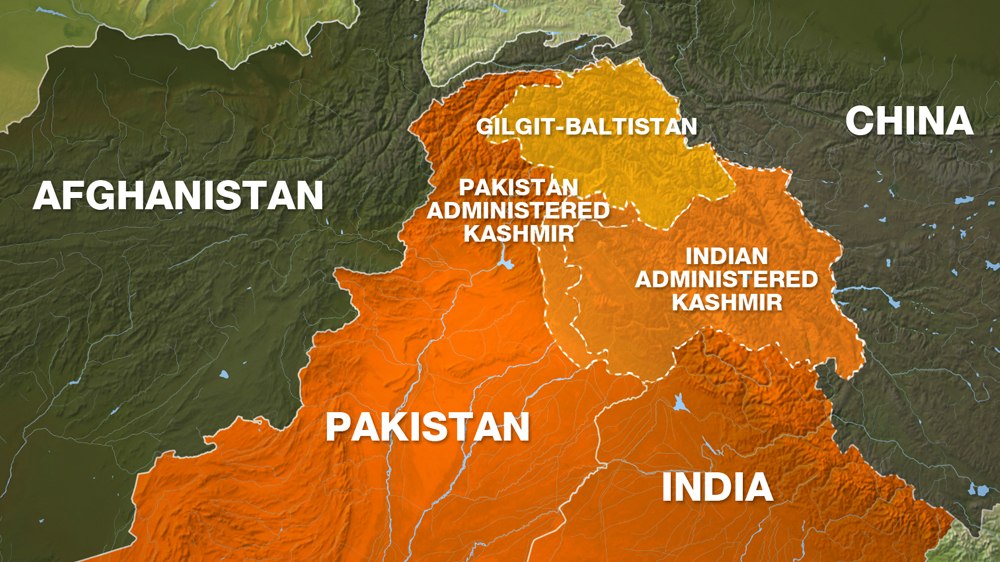
Kashmir Solidarity Day, observed annually on February 5th in Pakistan, serves as a powerful expression of unwavering support for the people of Indian-administered Jammu and Kashmir and their right to self-determination. This day symbolizes Pakistan’s deep-rooted commitment to standing by its Kashmiri brethren in their ongoing struggle against oppression. Since its inception in 1991, the occasion has been marked by nationwide demonstrations, rallies, and events aimed at drawing global attention to the human rights violations committed in the region.
A closer examination of historical events, including the controversial signing of the Instrument of Accession and the geopolitical complexities surrounding Kashmir, reveals India’s unlawful occupation of the territory. India’s blatant disregard for international norms and legal commitments is evident in its systematic human rights abuses in the valley. The unilateral revocation of Articles 370 and 35-A on August 5, 2019, was a testament to India’s refusal to acknowledge the Kashmiri people’s right to self-determination. This move not only altered the region’s constitutional status but also stood in direct violation of the United Nations Charter, which prohibits unilateral changes to disputed territories. Consequently, the Simla Agreement, which once sought to foster bilateral dialogue, has become irrelevant in the face of India’s repressive actions.
The deteriorating human rights situation in Jammu and Kashmir remains a subject of grave international concern. Reports have consistently documented widespread violations, including arbitrary arrests, enforced disappearances, extrajudicial killings, and severe restrictions on fundamental freedoms such as speech and assembly. The Indian government justifies its heavy military presence in the valley under the guise of maintaining law and order. However, ground realities tell a different story—one of brutal suppression and systematic violence. Security forces have been implicated in countless cases of sexual violence, excessive use of force against civilians, and targeted crackdowns on journalists. Organizations such as Amnesty International and Human Rights Watch have repeatedly raised alarms over these atrocities. Yet, the international community has remained largely unresponsive, prioritizing strategic and economic interests over human rights concerns.
For Pakistan, the Kashmir issue remains a cornerstone of its foreign policy and national identity. Pakistan has consistently advocated for a peaceful resolution to the dispute based on UN Security Council resolutions, which call for a plebiscite to determine the will of the Kashmiri people. However, India has persistently rejected any discussion on holding a referendum, instead asserting that Jammu and Kashmir is an integral part of its territory. This refusal to engage in dialogue has further exacerbated tensions between the two nuclear-armed neighbors and prolonged the suffering of millions of Kashmiris.
Despite international legal provisions supporting the right to self-determination, India continues to defy global norms by enforcing draconian laws that criminalize dissent and silence Kashmiri voices. Internet blackouts, mass detentions, and severe curfews have become routine tools of oppression, effectively turning Kashmir into the world’s most militarized zone. India’s unwillingness to honor its commitments under international law exposes the duplicity of its democratic claims. The United Nations has reiterated the need for a resolution through dialogue and self-determination, yet concrete action remains absent.
Pakistan, on the other hand, has steadfastly upheld its commitment to the Kashmiri cause through political, diplomatic, and moral support. Successive governments have called for international intervention and urged global powers to recognize the plight of Kashmiris. Islamabad has continuously raised the issue at various international forums, including the United Nations General Assembly, the Organization of Islamic Cooperation (OIC), and global human rights conferences. Pakistan’s advocacy underscores the importance of upholding human rights and fulfilling the promises made to the Kashmiri people under UN resolutions.
While diplomatic efforts continue, it is imperative that civil society, media, and international watchdogs play a greater role in exposing Indian atrocities and mobilizing global public opinion. The responsibility to act does not rest solely with governments; rather, it is a collective duty of human rights organizations, legal bodies, and individuals who believe in justice and freedom. The global silence on Kashmir must be broken, and tangible steps must be taken to ensure accountability for human rights violations.
Kashmir Solidarity Day is not just a symbolic observance; it is a call to action. It reinforces Pakistan’s unwavering resolve to support the Kashmiri struggle and highlights the urgent need for a just resolution to the long-standing conflict. As long as the people of Jammu and Kashmir continue to endure occupation and suppression, Pakistan will remain their voice on the international stage. The world must recognize that peace in South Asia cannot be achieved without addressing the Kashmir dispute in accordance with the aspirations of its people. The fight for justice and self-determination must continue, and the voices of Kashmiris must never be silenced.
